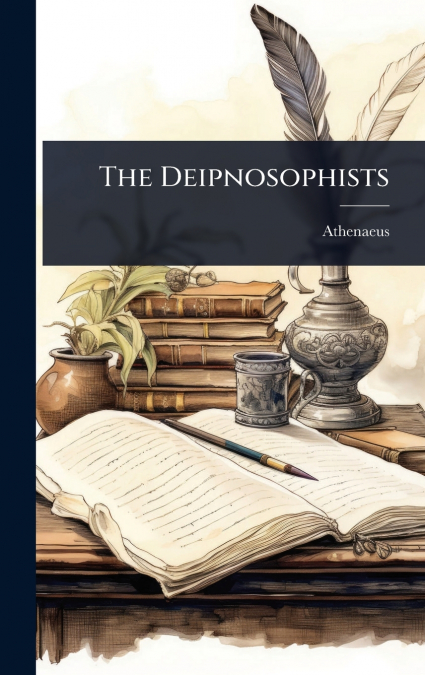
Athenaeus (of Naucratis.)
The Deipnosophists (or Banquet of the Learned) by Athenaeus of Naucratis is a sprawling and richly detailed work that purports to be a record of conversations that took place during a series of banquets. Set in Rome, the participants, all learned men, engage in discussions covering a vast range of topics, including literature, philosophy, history, food, music, and more. The work survives in a truncated form, but still represents a wealth of information about the classical world. Athenaeusâs work is valued by historians and literary scholars alike for its extensive quotations from lost works of classical literature and its detailed descriptions of ancient customs and practices. The characters, each with their own distinct personalities and interests, offer diverse perspectives on the topics at hand, making the work both informative and entertaining. 'The Deipnosophists' provides a fascinating glimpse into the intellectual and social life of the Roman Empire and remains a vital resource for understanding classical antiquity.This work has been selected by scholars as being culturally important, and is part of the knowledge base of civilization as we know it. This work was reproduced from the original artifact, and remains as true to the original work as possible. Therefore, you will see the original copyright references, library stamps (as most of these works have been housed in our most important libraries around the world), and other notations in the work.This work is in the public domain in the United States of America, and possibly other nations. Within the United States, you may freely copy and distribute this work, as no entity (individual or corporate) has a copyright on the body of the work.As a reproduction of a historical artifact, this work may contain missing or blurred pages, poor pictures, errant marks, etc. Scholars believe, and we concur, that this work is important enough to be preserved, reproduced, and made generally available to the public. We appreciate your support of the preservation process, and thank you for being an important part of keeping this knowledge alive and relevant.